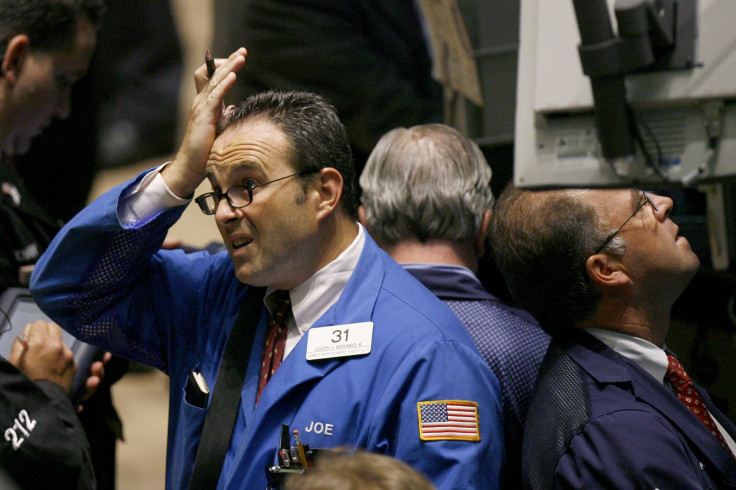Friday's Stock Market Close: US Equities Drop In Volatile Trading As Oil Plunges

KEY POINTS
- Crude futures dropped below $20
- Treasury yields plunged
- Dow now below level at rump's inauguration
U.S. stocks sank on Friday as worries over the economic impact of the coronavirus epidemic weighed heavily on investors. Oil futures plunged under $20 per barrel.
The Dow Jones Industrial Average dropped 913.21 points to 19,173.98, while the S&P 500 fell 104.47 points to 2,304.92 and the Nasdaq Composite Index dropped 271.06 points to 6,879.52.
For the week, the Dow plunged 17.3%.
The Dow has now given back all its gains since President Donald Trump’s inauguration. On January 19, 2017, the day before Trump took office, the Dow closed at 19,804.72
Volume on the New York Stock Exchange totaled 7.22 billion shares with 1,313 issues advancing, one setting a new high, and 1,714 declining, with 281 setting new lows.
Active movers were led by Bank of America (BAC), Ford Motor (F) and Apple Inc. (AAPL).
The Federal Reserve said it will expand its asset purchase program to include municipal money market funds.
Senate Republicans unveiled a proposed coronavirus relief bill that would provide $50 billion to the U.S. airline industry, $8 billion to cargo air carriers and $150 billion to other distressed industries. The bill would also cap executive pay for two years.
The U.S. Treasury extended the filing deadline for federal taxpayers to July 15 from Apr. 15.
New York State ordered all nonessential workers to stay home.
“The volatility, there’s no reason to think it dissipates,” said JJ Kinahan, chief market strategist at TD Ameritrade. “What you really want to see is the market establishing some trading ranges. Right now, I don’t think anyone can say there’s definite support or resistance because the moves have been just so big.”
The markets are trading more on emotion than the actual data,” said Sal Bruno, chief investment officer at IndexIQ. “That’s what’s causing the volatility. We’ve seen assets just trade off, really for no good reason, but just because there’s fear. When we look back at this, we’ll see how much of this was information-based trading and how much was emotionally based trading.”
Late Thursday, California Gov. Gavin Newson issued an order to “stay at home” for residents statewide, to slow the spread of the virus.
“Market volatility will persist until the government – fiscal or monetary – provides a backstop to stressed corporates and small & medium businesses,” said New York Life Investments’ economist and multi-asset portfolio strategist Lauren Goodwin. “Support of those functions is vital to ensuring the economic disruption of covid-19, though severe, is temporary.”
Overnight in Asia, markets were mixed. China’s Shanghai Composite rose 1.61%, while Hong Kong’s Hang Seng surged 5.05%, and Japan’s Nikkei-225 dropped 1.04%.
In Europe markets closed higher as Britain’s FTSE-100 gained 1%, France’s CAC-40 jumped 5.39% and Germany’s DAX rose 4.33%.
Crude oil futures plunged 21.33% at $19.84 per barrel, Brent crude gained 2.11% at $27.55. Gold futures gained 0.87%.
The euro slipped 0.25% at $1.0666 while the pound sterling rose 0.81% at $1.578.
The yield on the 10-year Treasury dropped 16.18% to 0.938% while yield on the 30-year Treasury slumped 10.57% to 1.556%.
© Copyright IBTimes 2025. All rights reserved.





















